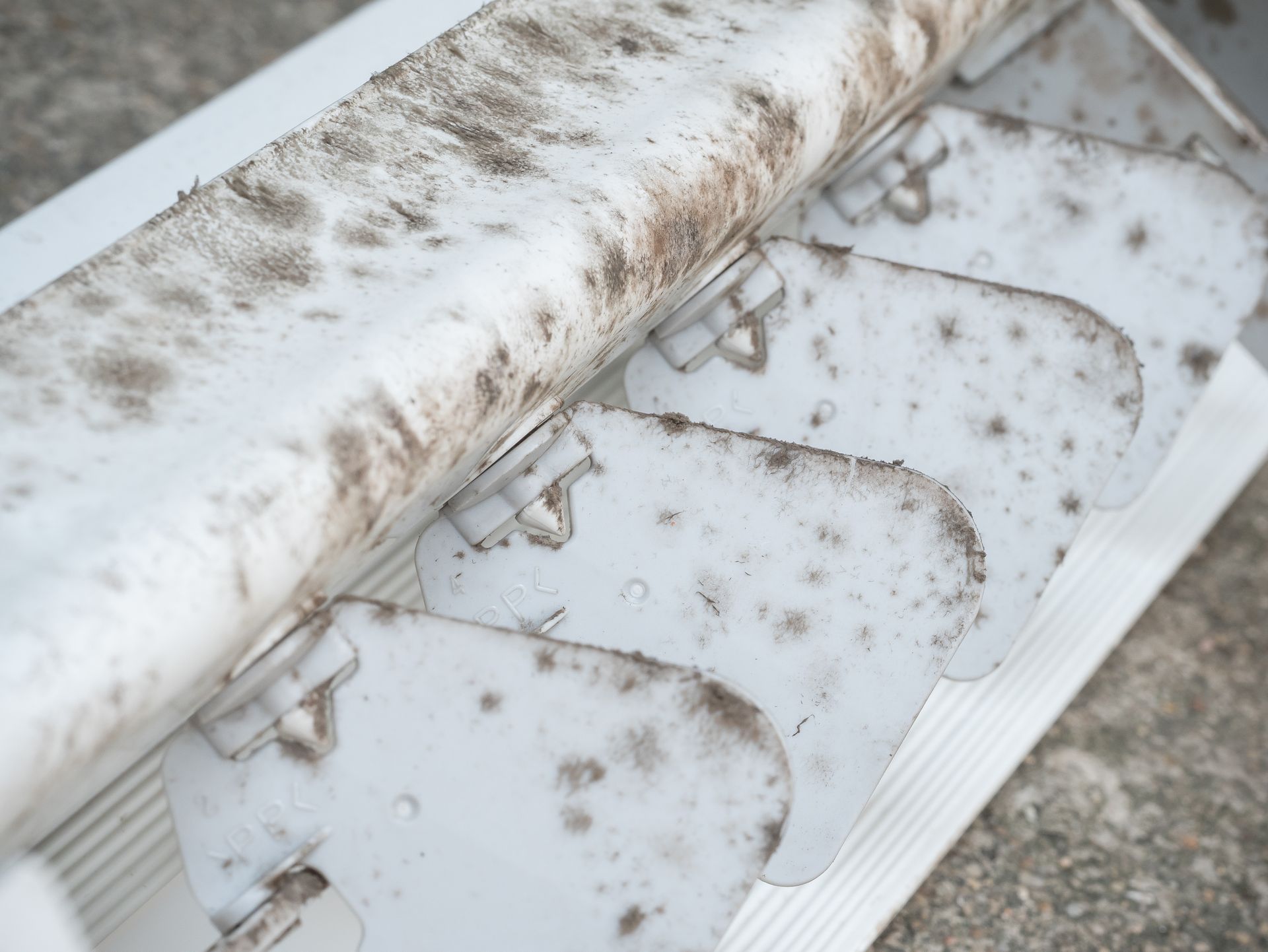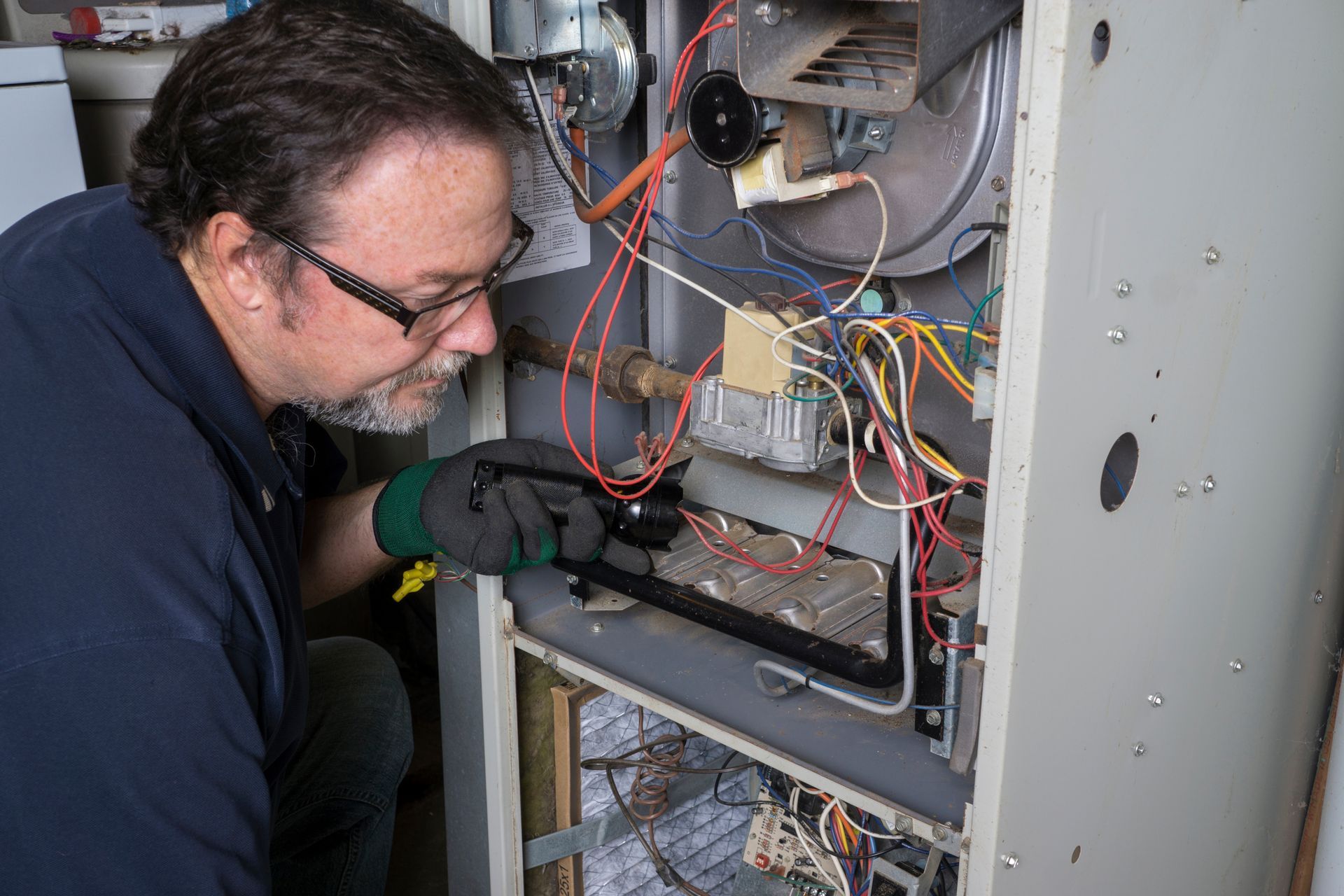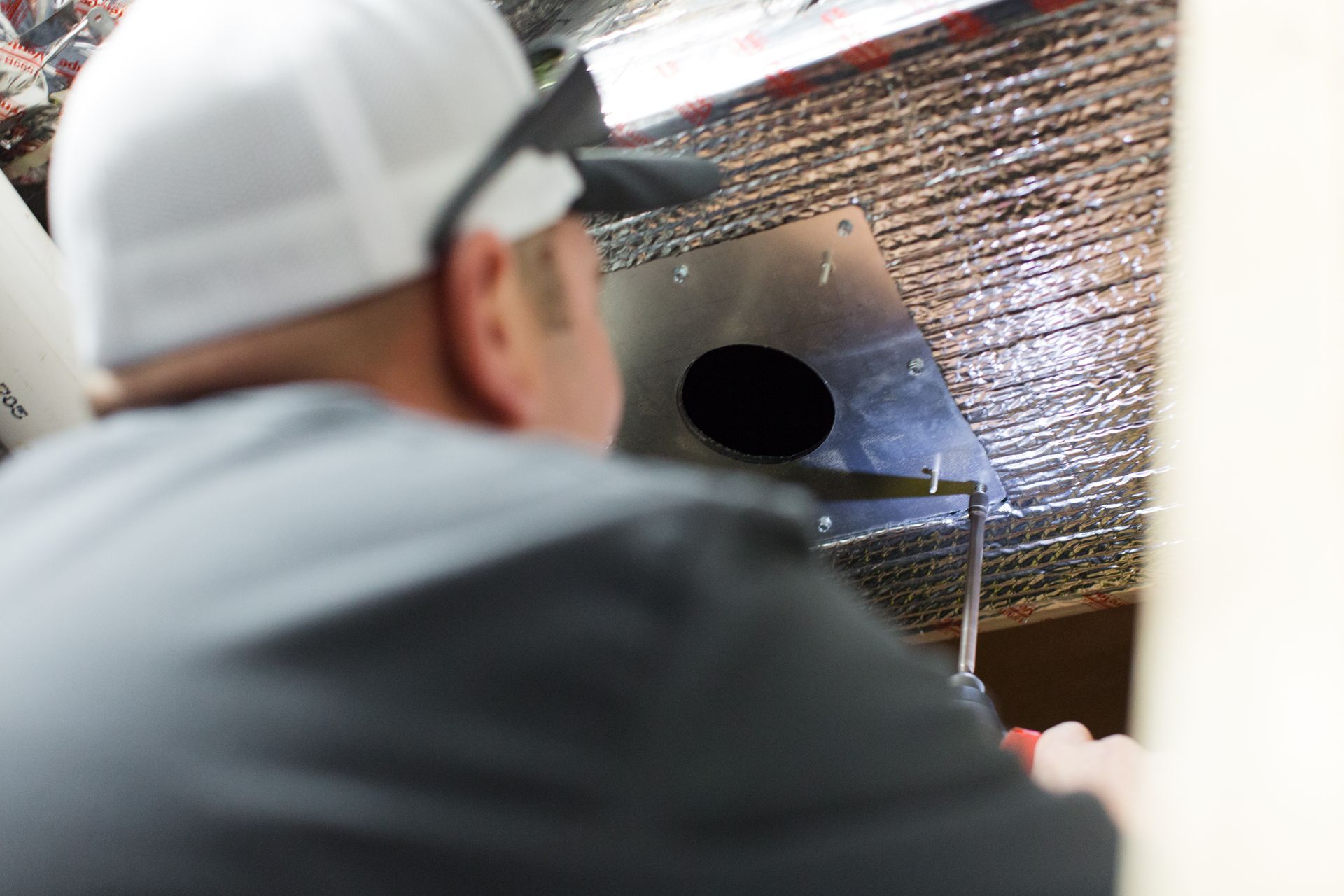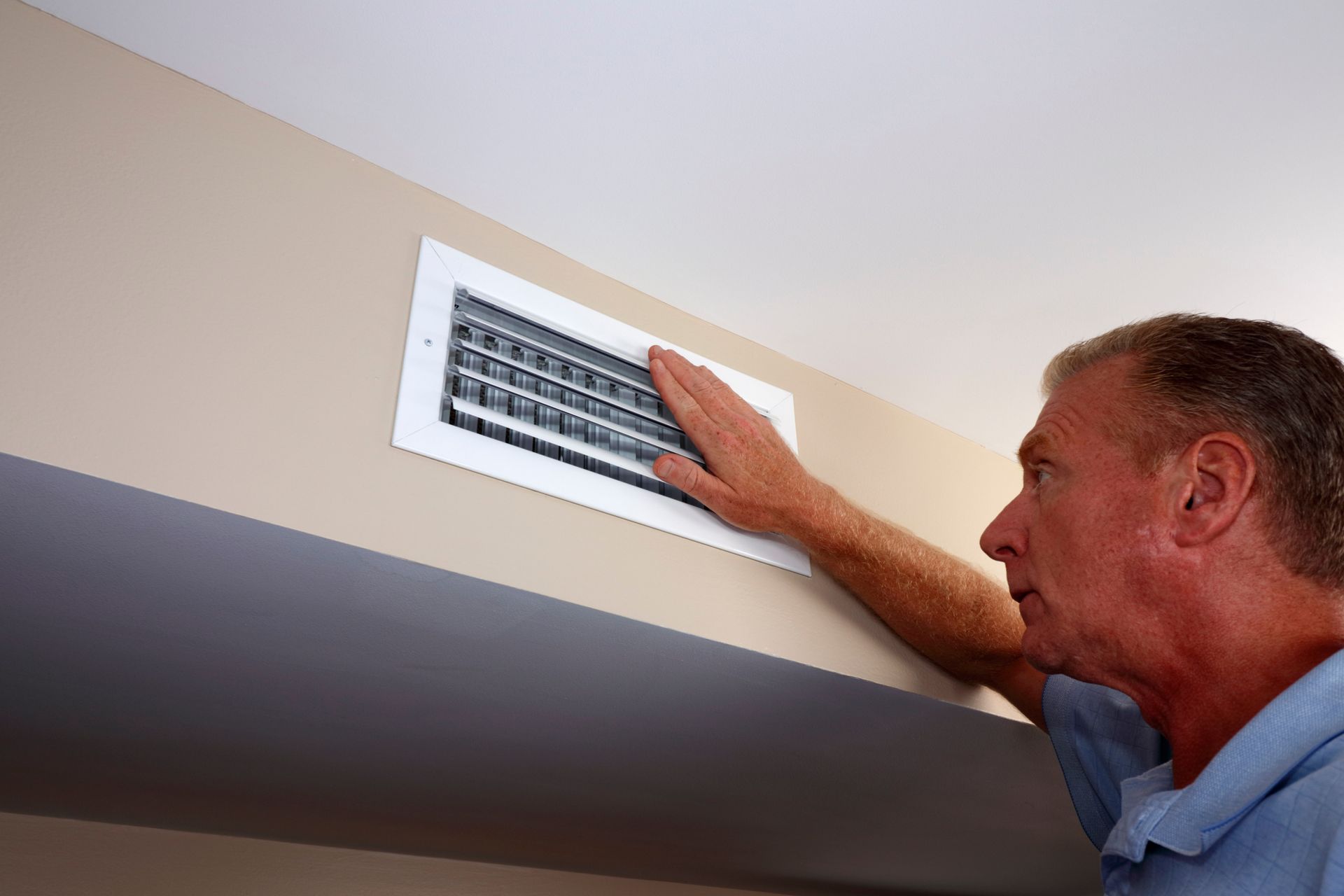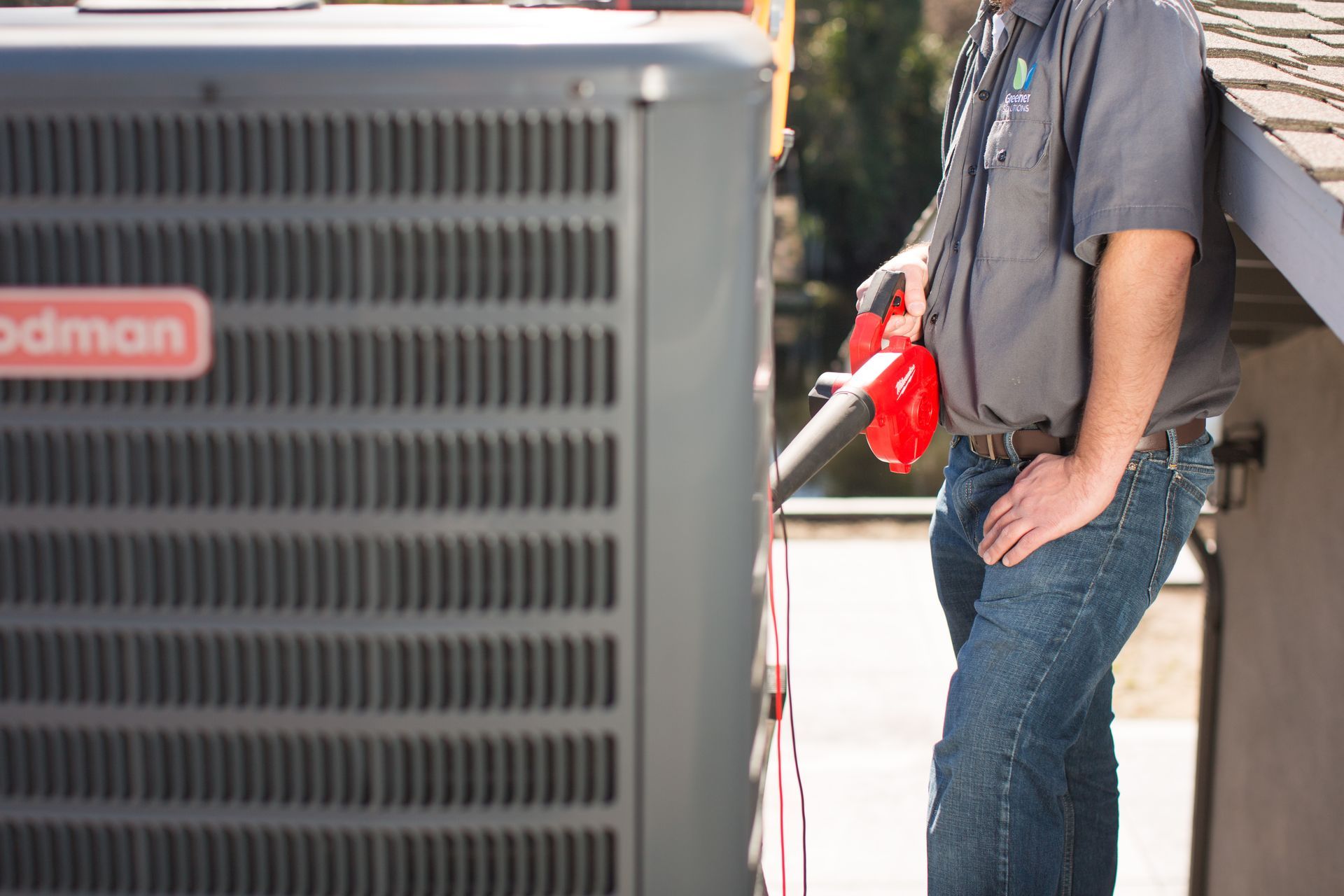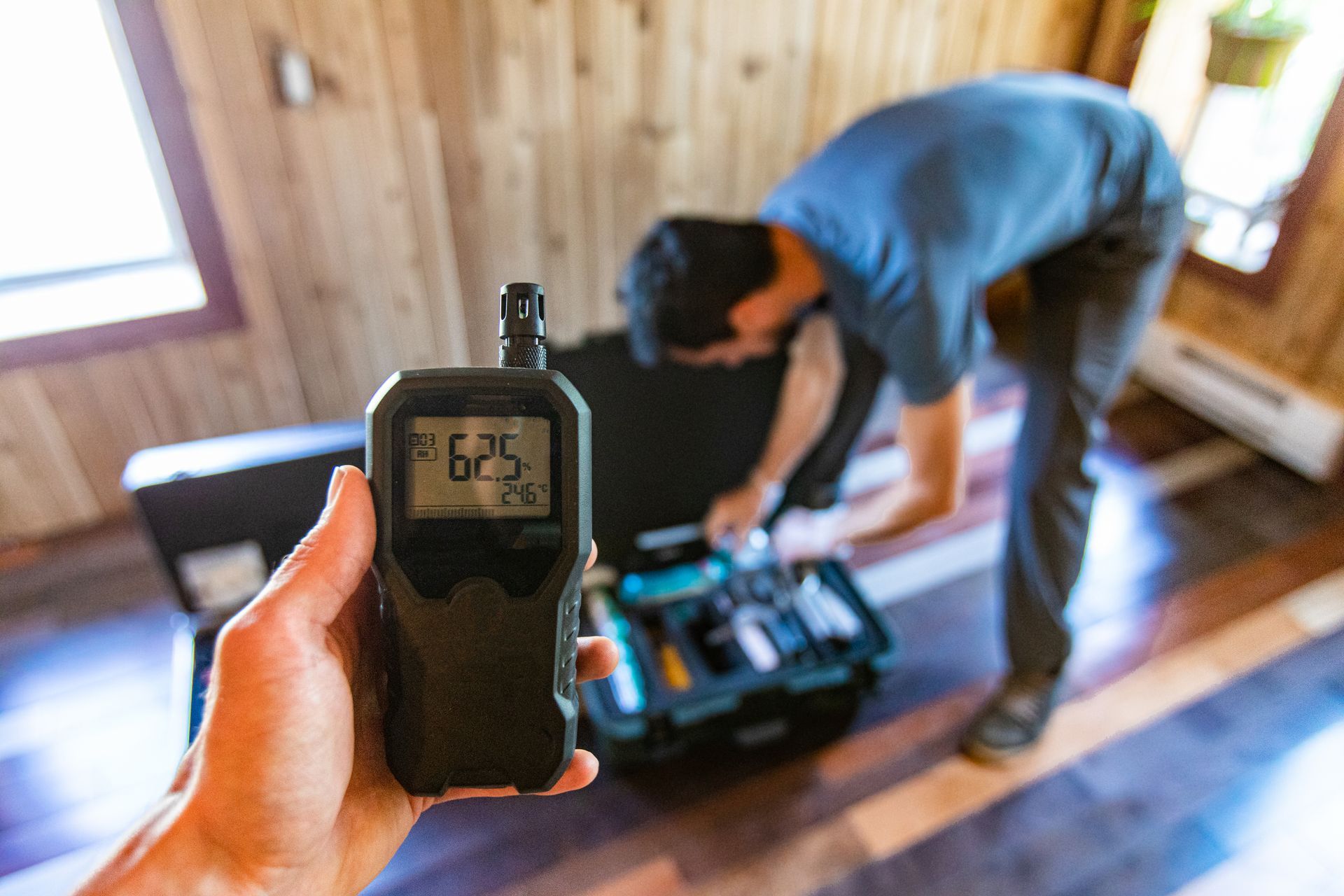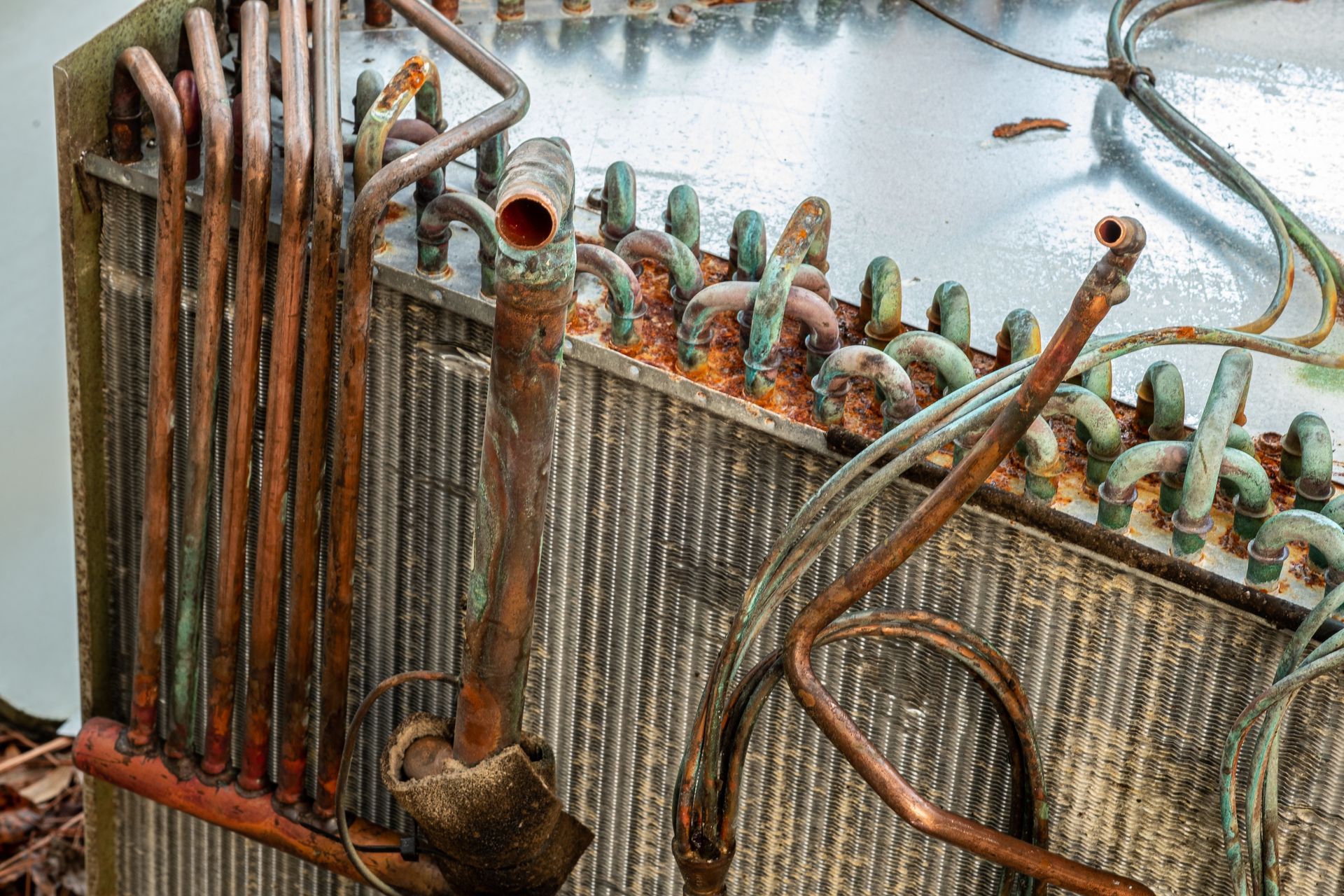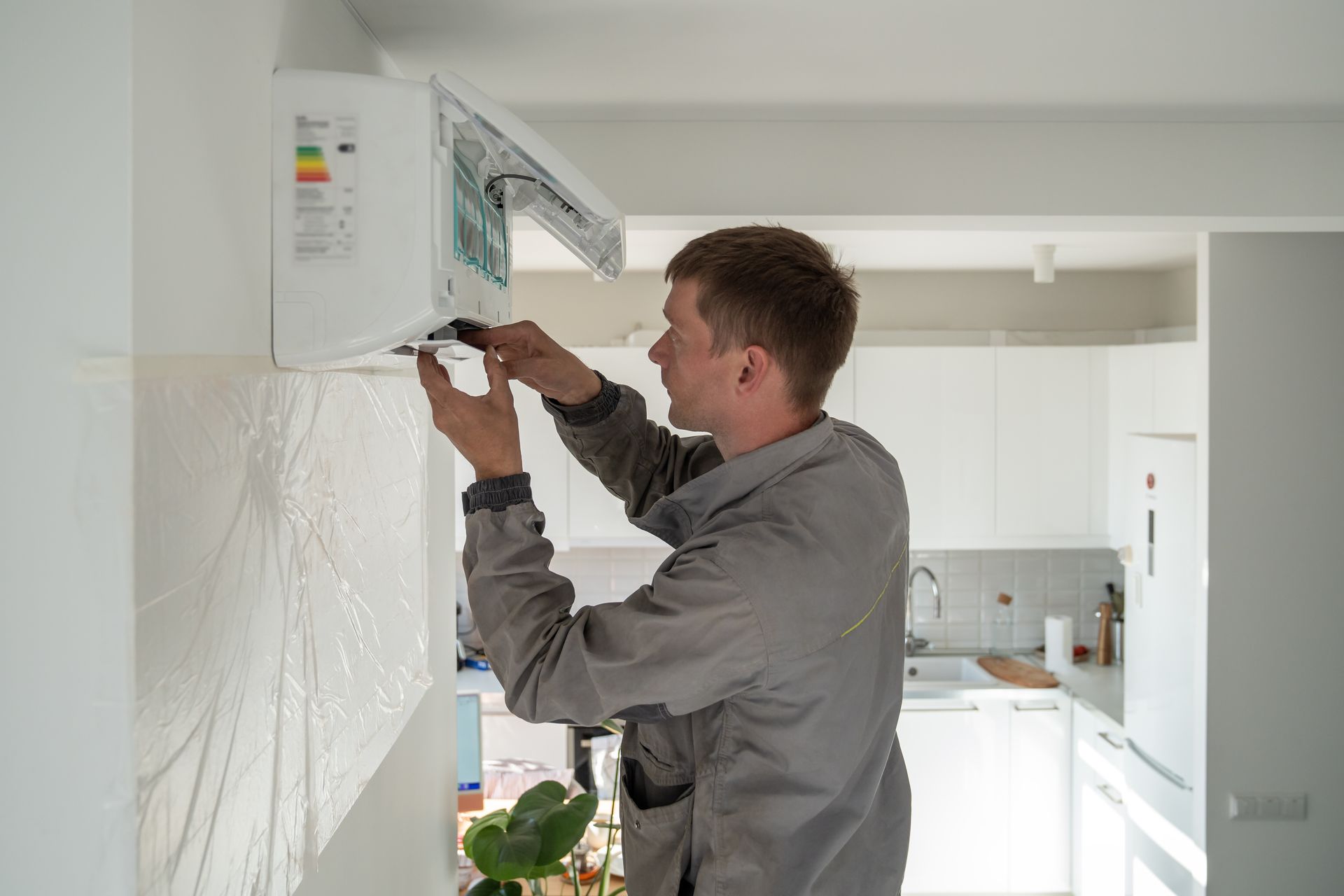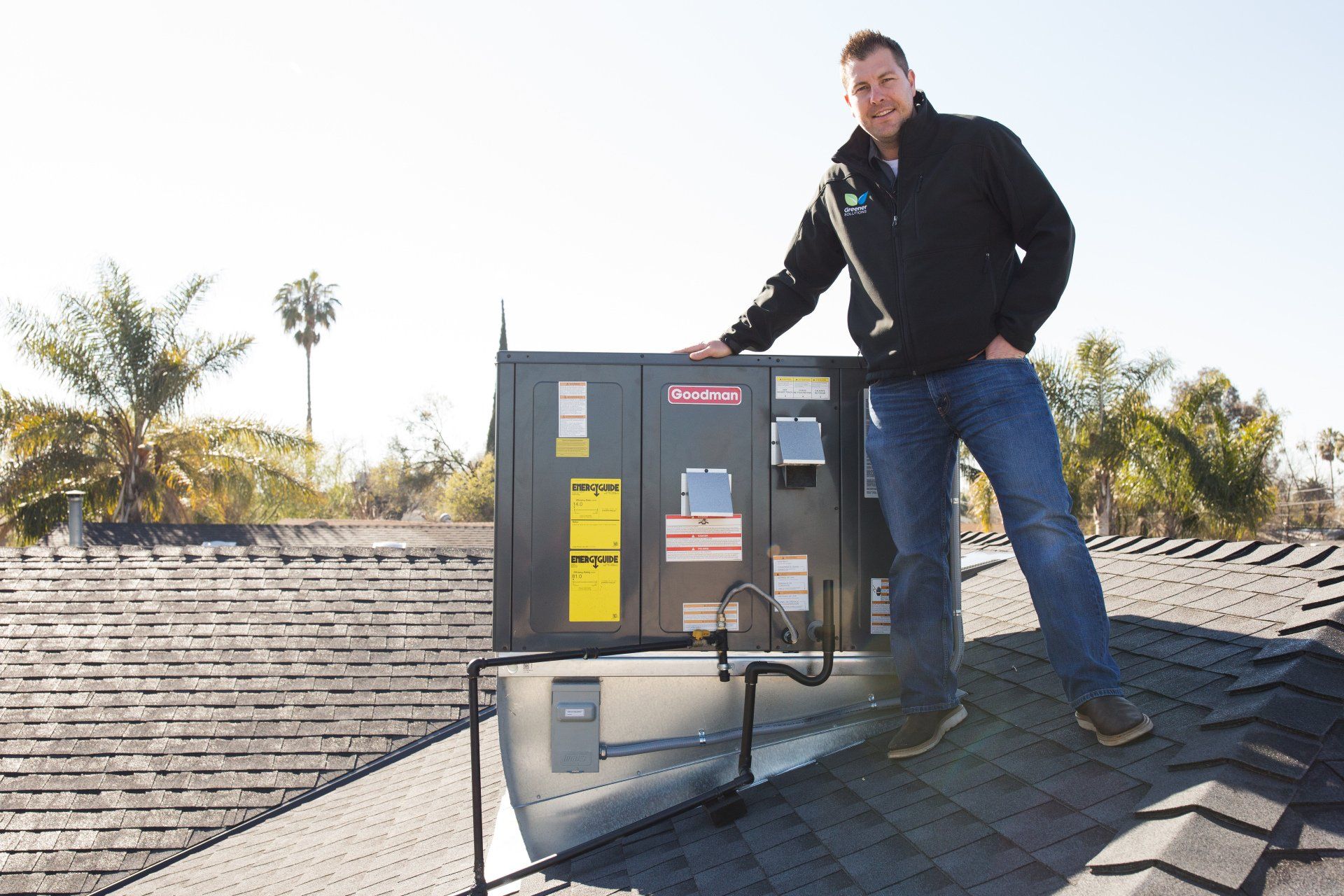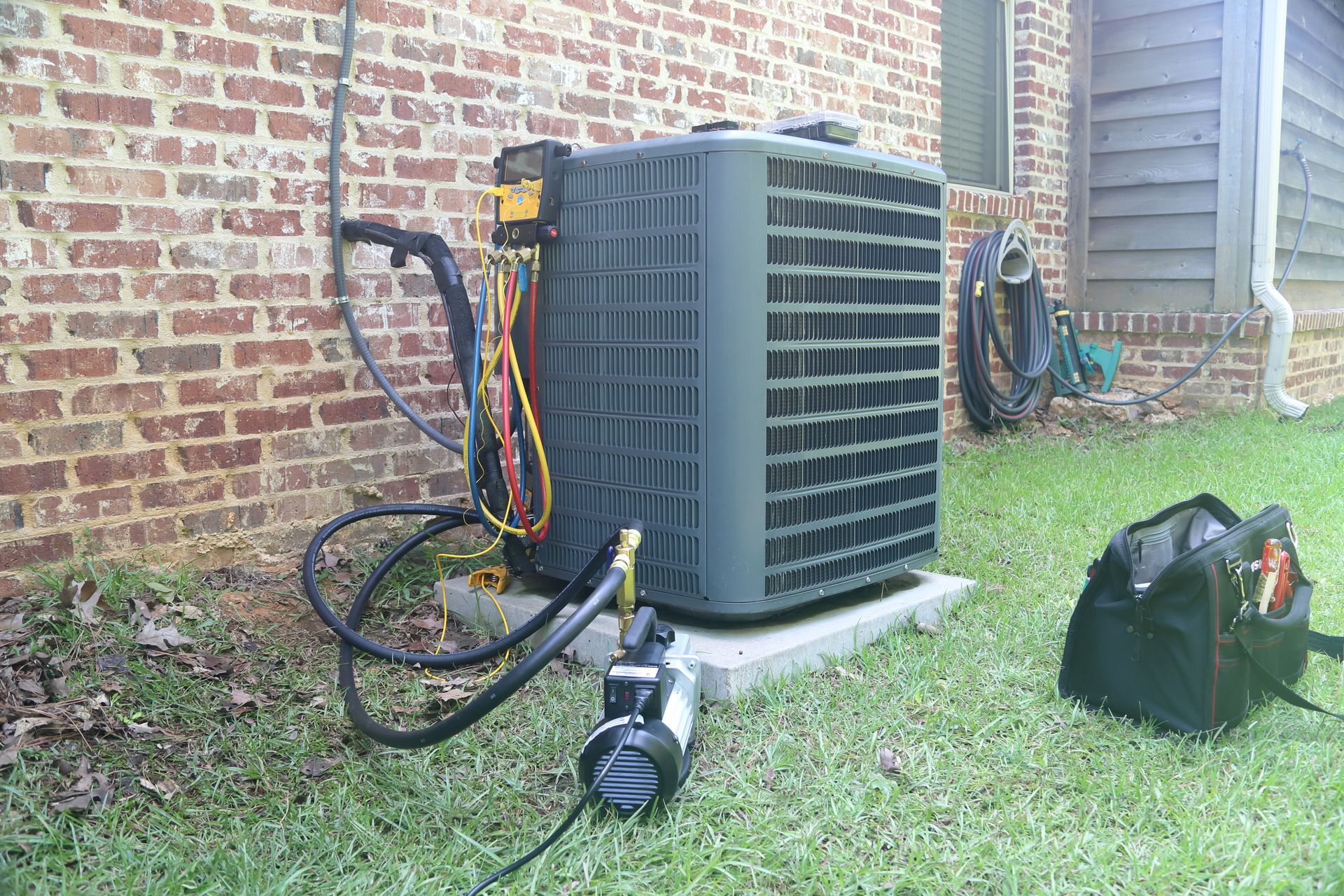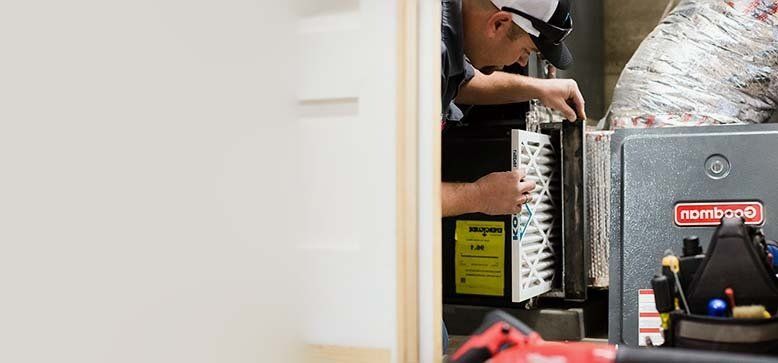Why is My Air Conditioner Blowing Hot Air?
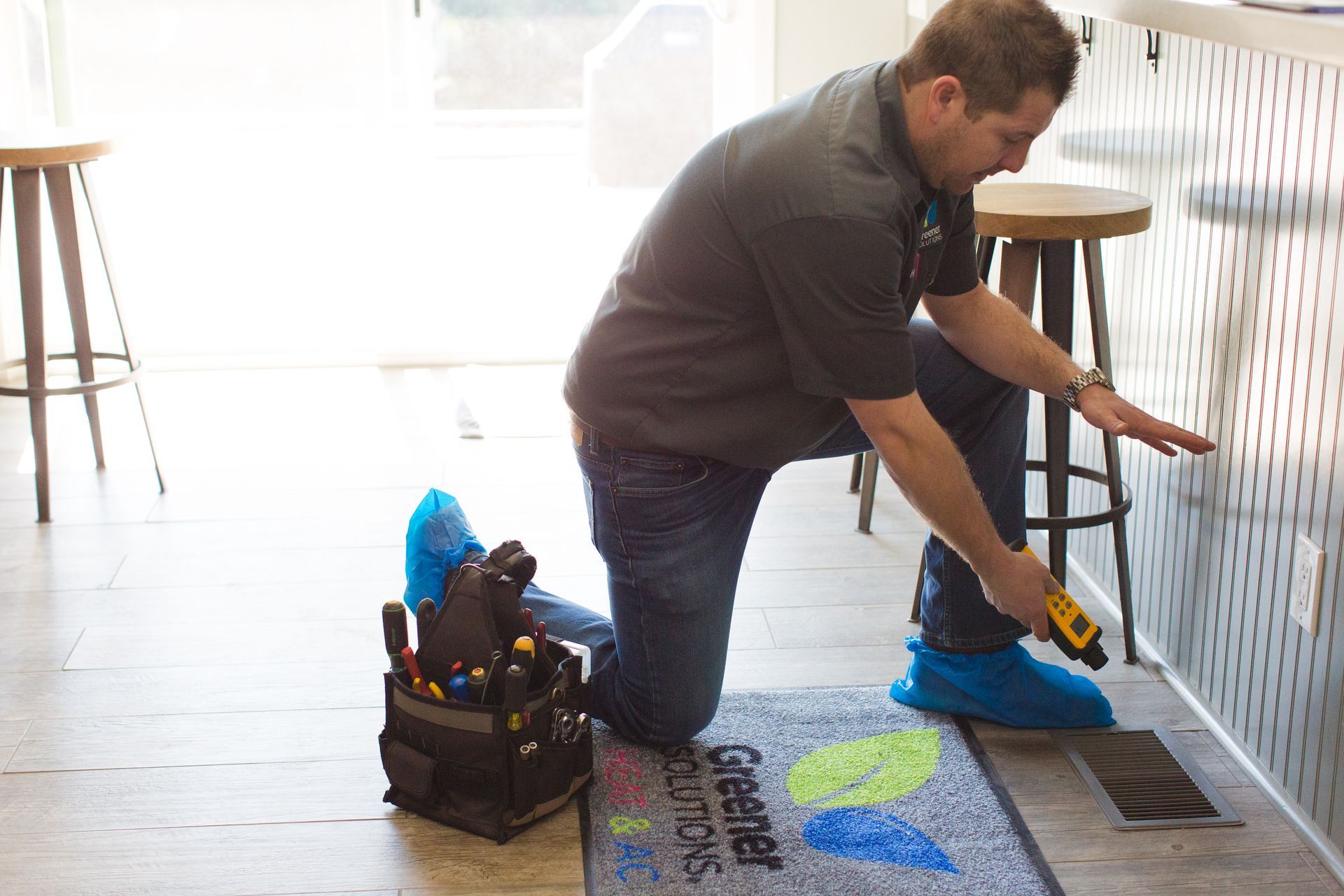
During the peak of summer, an air conditioner is our best ally against the unforgiving heat. However, it can become problematic when the air conditioner fails at its sole function and starts blowing warm air. This could occur due to a range of issues, from something as simple as a dirty air filter to more complex problems like low refrigerant or leaks in the ductwork. Understanding the common reasons behind such air conditioning issues and implementing preventive steps can help minimize disruptions to your comfort. Regular care and maintenance of your AC unit are critical in stopping these issues before they start. Proper upkeep can decrease the chances of an air conditioner blowing warm air when you need cool relief the most.
How Air Conditioners Operate
To comprehend what may be causing warm air, let's first understand the basics of how an air conditioner works:
An air conditioner doesn’t really produce cool air. Instead it works on the principle of heat transfer to remove heat. It pulls in warm indoor air via a fan, directs it through a filter and over an evaporator coil. These coils contain a unique substance called a refrigerant which absorbs heat. As the warm air hits the cold coil, heat is transferred to the refrigerant, resulting in cool air which is then circulated back into your home.
After the heat is absorbed, the warmed refrigerant expands into a gas and is routed through the system until it reaches the compressor. The compressor pressurizes this hot gas into a superheated vapor.
The final stage happens outside in the condenser unit, where the heat is dispersed outside through condenser coils. As the heat is removed, the refrigerant reverts into a liquid form before the incoming refrigerant pushes the liquid through the system to start the cooling cycle again.
If warm air is being recirculated into your home, it usually implies that the evaporator coil isn't efficiently removing heat from the air. Identifying the cause might seem daunting given the intricate operations of an air conditioner, but some of the problems are relatively easy to diagnose and fix. For more challenging issues, it’s advisable to contact air conditioning specialists like the team at GS Home Services.
Identifying Why Your Air Conditioner is Blowing Warm Air
Various factors could result in an air conditioner failing to cool properly. While some can be easily rectified, others might need expert attention.
Incorrect Thermostat Settings
Start with the simplest possibility: the thermostat settings. It might seem self-evident, but occasionally, the thermostat might be set to “heat” by mistake. If you want your air conditioner to deliver cool air, ensure your thermostat is set to “cool”.
Also, ensure the fan setting on your thermostat is not set to “on”. Although this might seem like the right choice on a hot day, it doesn’t provide the desired results. When the thermostat is set to “on”, the fan continuously blows air, even when your system isn't actively cooling which can result in warm air being circulated through your home. Switch your thermostat’s fan setting to “auto” to ensure only cooled air is circulated.
Finally, check the thermostat batteries and ensure the temperature is set to your desired level.
If you’ve checked these settings but still face problems, it could be due to an older malfunctioning thermostat. Refer to your air conditioner manual to verify your thermostat settings and if the issue persists, it might be time to consider upgrading to a programmable thermostat. Newer smart thermostats can help maintain a consistent indoor temperature and offer substantial energy savings in the long run.
Outdoor Condenser Unit Power Loss
AC units are built with two primary components - an indoor unit to circulate air and an outdoor unit that facilitates the transfer of heat, so the heat collected from inside is dispersed outside. If the indoor unit is blowing warm air, it might be because the outdoor unit has lost power. Without power, the outdoor unit cannot cool the air.
Typically, power loss occurs when a circuit breaker has tripped, or a fuse has blown. Older electrical systems and AC units may pose a higher risk of blowing a fuse. If the circuit supplying power to your outdoor unit is compromised, rectify it by flipping the switch back on or replacing the fuse. However, if it’s a recurring issue, you might have a larger problem that requires a professional's attention.
Dirty Outdoor Condenser
The outdoor condenser coil enclosure plays an essential role in heat transfer, which is necessary for proper AC operation. As it's located outside, it's exposed to dirt, debris, and weather that can clog or damage the coils. This interrupts heat transfer, reducing efficiency and causing warm air to be recirculated inside.
It's important to maintain a clear area of 2 feet or more around the condenser unit to give the unit enough space to breathe. If you notice debris, switch off the unit and remove the larger items manually before rinsing off smaller debris with a hose. If the coil fins are bent or flattened, a professional air conditioning tune-up might be needed to repair the minor damage.
Failed Outdoor Condenser Fan or Fan Motor
The fan in your outdoor condenser unit helps disperse the heat from the coils by circulating ambient temperature air over the hot coils. If the fan stops spinning, the condenser can overheat, activating a safety switch that shuts down your AC system to prevent further damage. This can result in warm air being circulated. Common issues include a worn-out fan motor or obstruction that causes the fan to get stuck due to rust, damaged bearings, a loose belt, or trapped debris. Depending on the problem, the entire outdoor unit may need replacing or the debris may need to be removed. Regardless of the problem, professional help is recommended to prevent serious injury from a fast-moving fan blade.
Failed Compressor
The compressor in your HVAC system operates as the heart of your AC unit, circulating the refrigerant throughout the system using applied pressure. With age, the compressor can start drawing excessive power, potentially leading to a blown fuse. Another problem that can occur is when contaminants accumulate inside the compressor resulting in reduced efficiency. In the worst-case scenario, a grounded compressor might occur, where a wire in the motor is severed which can result in a short circuit. This would require replacing the compressor or the entire outdoor unit. Diagnosing compressor issues can be challenging and is best left to professionals.
Depleted or Leaking Refrigerant
When your AC starts to expel warm air, it could be because your refrigerant is running low or has sprung a leak. How does this affect the cooling process? Well, when refrigerant is under pressure, it heats up; conversely, when it's low, the refrigerant expands which drops the temperature and may cause the coils to freeze. This freezing slows the refrigerant's smooth circulation in the closed-loop system which hinders heat transfer and results in warm air output.
A myriad of issues like corrosion, poor assembly, loose joints, or simply wear and tear can cause frequent refrigerant leaks. Addressing these leaks often involves replacing parts or overhauling your system. It’s best to get professionals to locate and repair the leak, and recharge refrigerant levels.
Dirty or Frozen Evaporator Coils
The evaporator coils are key players in your AC's cooling process because they are responsible for absorbing heat from the air. If they're coated with grime or debris, they lose their ability to absorb heat, which may result in the coils freezing. Additionally, insufficient refrigerant levels can also lead to frozen coils. Neglected annual AC maintenance could be why you're stuck with dirty coils, low refrigerant, and a non-cooling AC.
If coils are frozen over, it is important to turn the unit off to see if thawing the coils will restore regular AC function. However, if the problem persists, it is important to book a maintenance appointment for your AC to ensure it's clean, tuned, and ready to keep your home comfortable.
Clogged or Dirty Air Filter
A common culprit for your AC blowing warm air is a dirty or clogged air filter. Your air filter plays an essential role in trapping airborne particles and debris which help keep the rest of your AC clean and operating safely. However, the filter can get dirty over time which restricts regular airflow. Such a blockage can disrupt air passage within the ducts, causing your evaporator coils to freeze and your AC to blow warm air.
Maintaining unimpeded airflow in your AC system is crucial. If your air filter is clogged, replacing it becomes necessary. Regular filter changes every 30 to 90 days, along with yearly professional maintenance, will ensure your system works efficiently and avoids major issues down the road.
Leaky Ductwork
If your HVAC system relies on traditional ductwork to distribute air, it's possible for air to leak into the walls in places where the ductwork is damaged or has gaps. This means that leaks, which can be caused by careless installation or pests, could be why your AC is blowing warm air. Typically, ducts are located in non-climate-controlled spaces like the attic and inside walls where warm air can enter the ducts and get circulated in your home.
A possible solution to this issue is to seal your ducts fully, upgrade your AC unit to a compact, airtight duct system, or go ductless. These solutions should significantly reduce the risk of leaks, saving energy, money, and headaches as well as ensure that your ac unit is blowing cool air when it is needed.
Troubleshooting AC Problems
While there are several factors homeowners can check to understand why their AC is blowing hot air, most issues will require professional intervention. The following steps provide a simple guide to troubleshooting the issue to see if professional repairs and maintenance are needed.
- If your outdoor unit is not working at all, check if the circuit breaker has tripped. If it has, try resetting it.
- You may also want to inspect and reset your AC's disconnect box.
- If the problem is a frozen evaporator coil, turn off the AC and switch the fan on to help thaw the ice.
- Ensure your vents are open, replace dirty filters, and check for any obstructions blocking airflow into your return and supply vents. Sometimes, it's as simple as a piece of furniture blocking the way.
- If you've tried everything and still can't fix the problem, it's time to call in a professional.
Contact GS Home Services If Your AC Is Blowing Hot Air
If your AC isn't giving you the cool comfort you need, the qualified experts at Greener Solutions can help. Our licensed, trained professionals can diagnose the problem and implement the appropriate fix promptly. We're ready to inspect your AC and give you an understanding of the problem and how to resolve it. Schedule an inspection today!
AC Blowing Hot Air FAQs
-
How do I fix my AC from blowing hot air?
Checking and replacing a dirty air filter is a good first step if your AC is blowing hot air. If this doesn't resolve the issue, you may need professional help as it could indicate a refrigerant leak or a compressor issue.
-
Why is my AC running but not cooling?
Several issues like a dirty filter, a malfunctioning thermostat, or problems with the outdoor unit could cause your AC to run without cooling. Accurate diagnosis may require a professional check-up.
-
Should I turn off the AC if it is blowing warm air?
Turning off your AC when it's blowing warm air can help to prevent further strain on the system. It also gives the unit time to defrost if frozen evaporator coils are the problem.
-
Why is my AC blowing hot air inside and cold air outside?
When your AC blows hot air inside and cold air outside, it often indicates an issue with the heat pump operating in reverse. This could be due to a thermostat setting error, a refrigerant leak, or a malfunctioning reversing valve. A technician's attention is required in such a case.
Recent Posts
-
Our Services
ButtonSee All Our Services
-
About
ButtonLearn More about
Greener Solutions
-
Contact Us
ButtonImmediate Service
Emergency Services
Live Support
Have an HVAC emergency? Call for immediate service. Available 24/7

